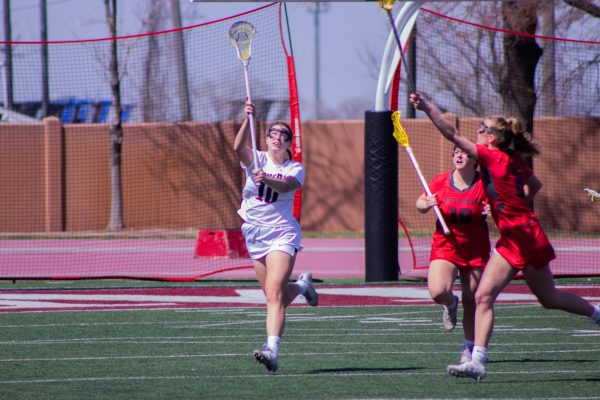Gearing up for fresh seasons
Pipers discuss the challenges involved in being student athletes.
September 17, 2013
In soccer, the players compete on the field for 90 minutes. In swimming, they compete until they reach the finish line. In track and field, they compete all the way through for the chance to get first place. Athletes spend countless hours training prior to game day and in the preseason months, because, after all, game time is what they train for.
Senior Travis Latzke is a track and field athlete. He will be starting the team’s Fall Fitness program in November. Latzke is a jumper and works to get faster every time he’s in the gym; however, he revealed that speed is one of those things that’s hard to monitor.
“It’s really hard running wise; it’s not like lifting where you’re going to see fast results,” he said. “To increase our explosiveness and top speed we just have to [exercise] at an exceptive tempo…eight or ten [200 meter dashes] in a day.”
Latzke runs on average about 7-10 miles a week. He said his training in terms of running for miles is lighter compared to other track athletes because he’s training for speed rather than distance. His goal as a jumper is to place in the top five in the MIAC for triple jump and long jump.
“If you get too many miles in it hurts your top speed because you’re transforming your fast twitch into a slow twitch,” he said.
When it comes to an athlete pushing themselves too hard in training Latzke knows how much his body can handle.
“There’s a fine line,” he said. “Right now I’m a senior so I have a lot of experience so I know when I’m going to push myself too hard.”
He said first-years face the biggest challenge when it comes to training for their sport.
“First-years aren’t used to playing their sport all year round,” he said. “A lot of guys might be overworked and see some declines in their performance because they are overworked more than they are used to.”
Sophomore butterfly swimmer Ragan Sovell has experienced that.
“I am recovering my back right now from my first incredibly long season,” she said. “The seasons are double what you swim in high school…less meets but the events are longer so they’re more challenging and sometimes you have two day meets which are really quite exhausting; you don’t get nearly enough breaks.”
Sovell said swimming requires cross training: both running and weightlifting, along with swimming to stay conditioned for the season. Sovell is currently rehabbing her back with planks and weight room training to straighten it. Her motivation in the weight room is to return at full strength to a season she’s looking forward to.
“We have a new coach [Ryan Hawke], so I’m really interested in the changes he’s going to bring to the program; plus we have the biggest team we’ve had in seven years,” Sovell said.
Mallory Wirth, first-year women’s soccer player, shared what motivates her in an email interview.
“When it comes to training I keep myself disciplined by knowing that my teammates are constantly working hard at practice,” she messaged. “By seeing them work extremely hard it motivates me to work just as hard not only to improve myself but to help in improving the entire team.”
Her hard work has paid off; last week, she stepped up for her team. She recorded two goals and an assist. Wirth had noticed the added intensity in playing college soccer; however, she said it was a smooth transition overall.
“The transition from high school to college was fairly easy for me because of how nice and welcoming all the girls on the soccer team were,” she messaged. “Also with my older sister currently going through her third year of college, I looked to her for advice and guidance.”
Year round training for athletics and the intensity of athletics at a college level can be very time consuming. Latzke said he thinks there’s a misconception of student-athletes when it comes to outsiders viewing their commitment to academics.
“They probably overlook the way we take our academics; they probably think that all athletes care about in college is playing their sport,” he said. “I think a lot of athletes care just as much about their academics as their sport.”
Andy Clicquot, non-student, brought this issue to another dynamic.
“I’m not a student athlete, but I’m sort of an athlete myself, I box off-campus…boxing requires a lot of training…so you have to be very disciplined to be able to balance academics and training at the same time, and on top of that I work,” he said. “You really have to love it, have a passion, be disciplined, and extremely determined. You have to love what you’re doing otherwise you’re not going to succeed.”



